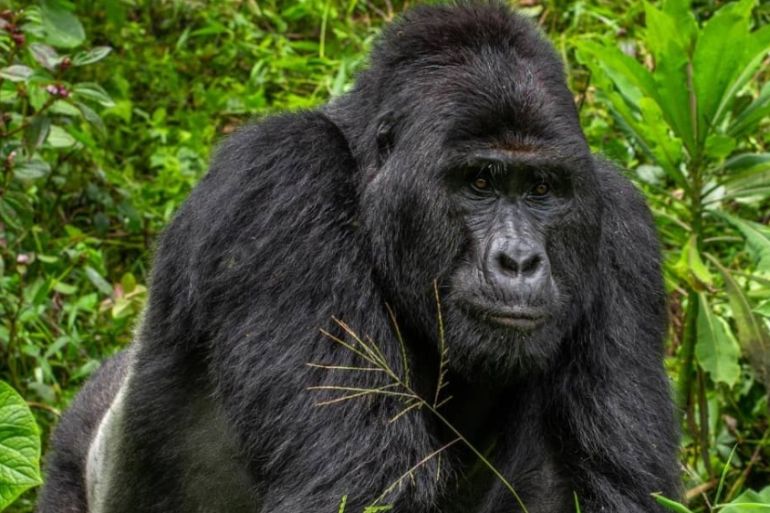Uganda: Poacher who killed rare gorilla gets 11 years in jail
Rafiki, a 25-year-old silverback gorilla, was killed with a spear in early June.

A Ugandan court has sentenced a poacher to 11 years in prison for killing a rare, endangered mountain gorilla.
Rafiki, a 25-year-old silverback who was the head of a gorilla group in the southwestern Bwindi Impenetrable Forest National Park, was killed with a spear in early June.
Keep reading
list of 4 itemsHong Kong’s first monkey virus case – what do we know about the B virus?
Indonesia hunts for ‘extinct’ Javan tiger
In Colombia, hunting poachers, not drug traffickers
Bwindi, a UNESCO World Heritage Site near Uganda’s border with the Democratic Republic of the Congo, is home to about half the world’s remaining population of roughly 1,000 mountain gorillas.
Byamukama Felix pleaded guilty to killing the gorilla, as well as a bush pig, and being in possession of bush pig and antelope meat during a hearing at a magistrate’s court in the town of Kabale, the Uganda Wildlife Authority (UWA) said in a statement on Thursday.
“We are relieved that Rafiki has received justice,” Sam Mwandha, UWA executive director, said.
“This should serve as an example to other people who kill wildlife. If one person kills wildlife, we all lose, therefore we request every person to support our efforts of conserving wildlife for the present and future generations.”
Here is our statement on the sentencing of Rafiki's killer.@newvisionwire @DailyMonitor @ChimpReports @SoftpowerNews @MulengeraM @nbstv @ntvuganda @ubctvuganda @UgandaMediaCent @observerug @RedPepperUG pic.twitter.com/eIGrHNY1Hm
— Uganda Wildlife (@ugwildlife) July 30, 2020
Earlier this month, UWA said poaching attempts have doubled in Uganda as a result of the coronavirus pandemic, which has led to a rise in unemployment and food shortages.
With the country in lockdown to limit the spread of COVID-19, game parks have been closed to the public for several weeks, allowing poachers easier access and making animals more vulnerable, according
to UWA.
The authority said rangers had discovered 367 snares laid by poachers between February and June this year, up from 163 during the same period in 2019.
Besides the killing of Rafiki, poachers in recent weeks have mostly hunted smaller animals, such as antelope, probably to eat them rather than for trading.